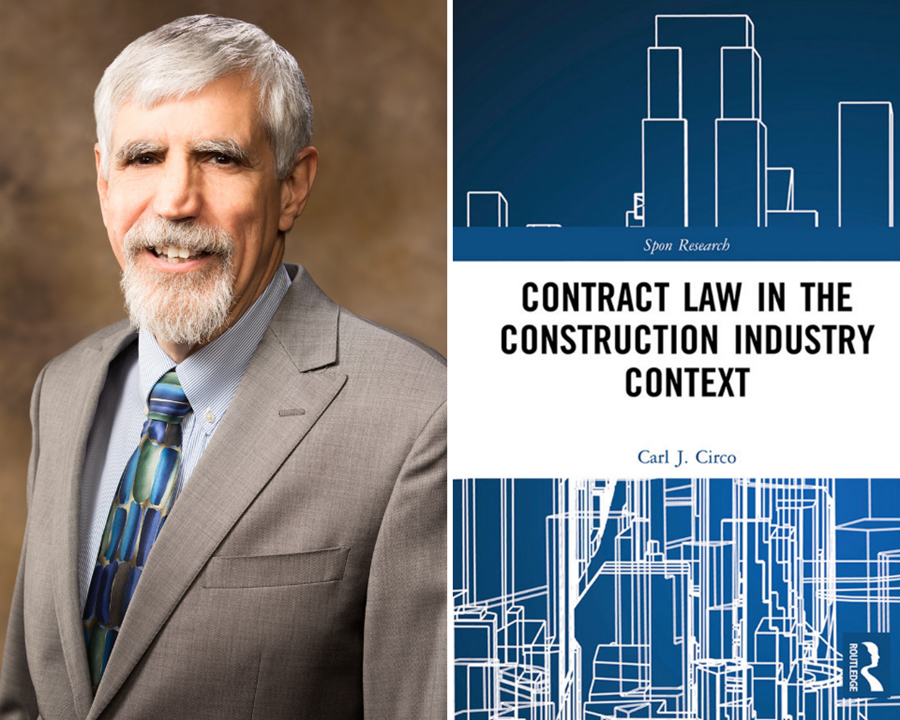FAYETTEVILLE, Ark. – A new book, published by Routledge in October 2019, chronicles how contract cases from the construction industry have influenced, solidified, refined and particularized U.S. contract law.
In Contract Law in the Construction Industry Context, Carl J. Circo, the Ben J. Altheimer Professor of Legal Advocacy at the University of Arkansas School of Law, maintains that the construction industry experience has helped to contextualize U.S. contract law. It has encouraged the common law to be more receptive to flexible legal standards and practices and less constrained by the relatively rigid rules that often characterize contract law.
"Experience brings contract law to life," Circo said. "Legal scholarship in the U.S. has not adequately investigated or analyzed construction law, and I hope this research begins to address this neglected academic field."
While other scholarly books have analyzed the themes, values, standards and principles of contemporary contract law, Circo's text captures how construction industry relationships and practices have influenced the common law of contracts.
"This book is essential reading for legal scholars, construction law and contract law specialists, and those interested in how the construction industry has helped shape the U.S. legal system," according to the publisher's website.
After providing an overview of construction law as a specialty of the practicing bar and as a field for scholarly inquiry, Circo examines the construction industry cases that have most directly influenced contract law. He reviews how industry dispute patterns have caused courts to refine contract law principles or to adapt and modify other principles. In separate chapters, he explains the special roles that U.S. Supreme Court opinions and those from lower federal courts have played in defining and distinguishing contract law in the construction industry. In the final chapters, he assesses implications the construction industry cases hold for contract theory as a whole and for the future of contract law.
Circo teaches Property, Real Estate Transactions, Construction Law, and Interviewing, Counseling, and Negotiating. In addition to his book, some of his other recent publications include articles on construction and design law, sustainable development and real estate transactions.
He has been a fellow of the American College of Real Estate Lawyers since 1993 and has held many leadership positions in sections and committees of the American Bar Association and state bar associations. Circo earned a Bachelor of Arts in philosophy and a Juris Doctor from the University of Nebraska and graduated first in his law school class.
Contract Law in the Construction Industry Context is part of the Spon Research Series, which provides advanced books for built environment researchers and professionals.
Routledge is a leading academic publisher in the Humanities and Social Sciences. It publishes thousands of books and journals each year, serving scholars, instructors and professional communities worldwide. Routledge is a member of Taylor and Francis Group, an Informa business.
Contacts
Darinda Sharp, director of communications
School of Law
479-575-7417,
